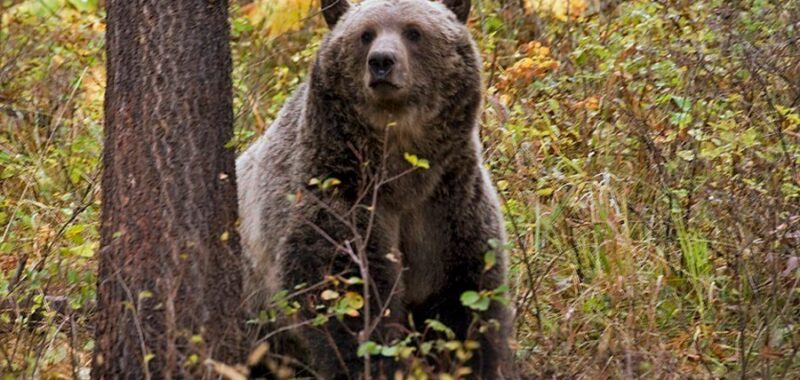
The U.S. Fish and Wildlife Service (USFWS) will keep endangered species protections for grizzly bears in place in most of the western U.S., the agency announced Wednesday, rebuffing states that petitioned for their removal.
In its announcement, USFWS declined petitions from both Wyoming and Montana but proposed to allow private landowners to kill bears to protect livestock, and without a permit if livestock are in imminent danger. However, it left protections in place for much of the population in Idaho, Montana, Washington state and Wyoming.
“This reclassification will facilitate recovery of grizzly bears and provide a stronger foundation for eventual delisting,” USFWS Director Martha Williams said in a statement. “And the proposed changes to our … rule will provide management agencies and landowners more tools and flexibility to deal with human/bear conflicts, an essential part of grizzly bear recovery.”
Advocates of delisting the bears have pointed to their threat to livestock and steadily rebounding populations, including recent expansions into western Washington. Grizzlies currently number about 2,000 in the 48 contiguous states, up from fewer than 1,000 in the 1970s but only a fraction of what was once 50,000.
The George W. Bush and first Trump administrations attempted to delist the species but were blocked in court.
House Natural Resources Committee Chair Bruce Westerman blasted the announcement in a statement Wednesday.
“The only reasonable announcement by the USFWS today would have been a total delisting of the grizzly bear in these ecosystems. USFWS is blatantly ignoring science in their decision by hiding behind bureaucratic red tape,” Westerman said. “Their decision endangers communities, especially farmers and ranchers, who live under the threat of grizzly bear attacks.”
Conservation groups, however, praised the decision, with Andrea Zaccardi, carnivore conservation program legal director at the Center for Biological Diversity, saying it will give grizzlies “a real chance at long-term recovery, instead of being gunned down and mounted on trophy walls.”
The decision is one of several wildlife and environmental protections announced in the waning days of the Biden administration, with the second Trump administration likely to take aim at much of Biden’s environmental policies. Earlier this week, the White House announced restrictions on offshore drilling and two new national monuments in California.

